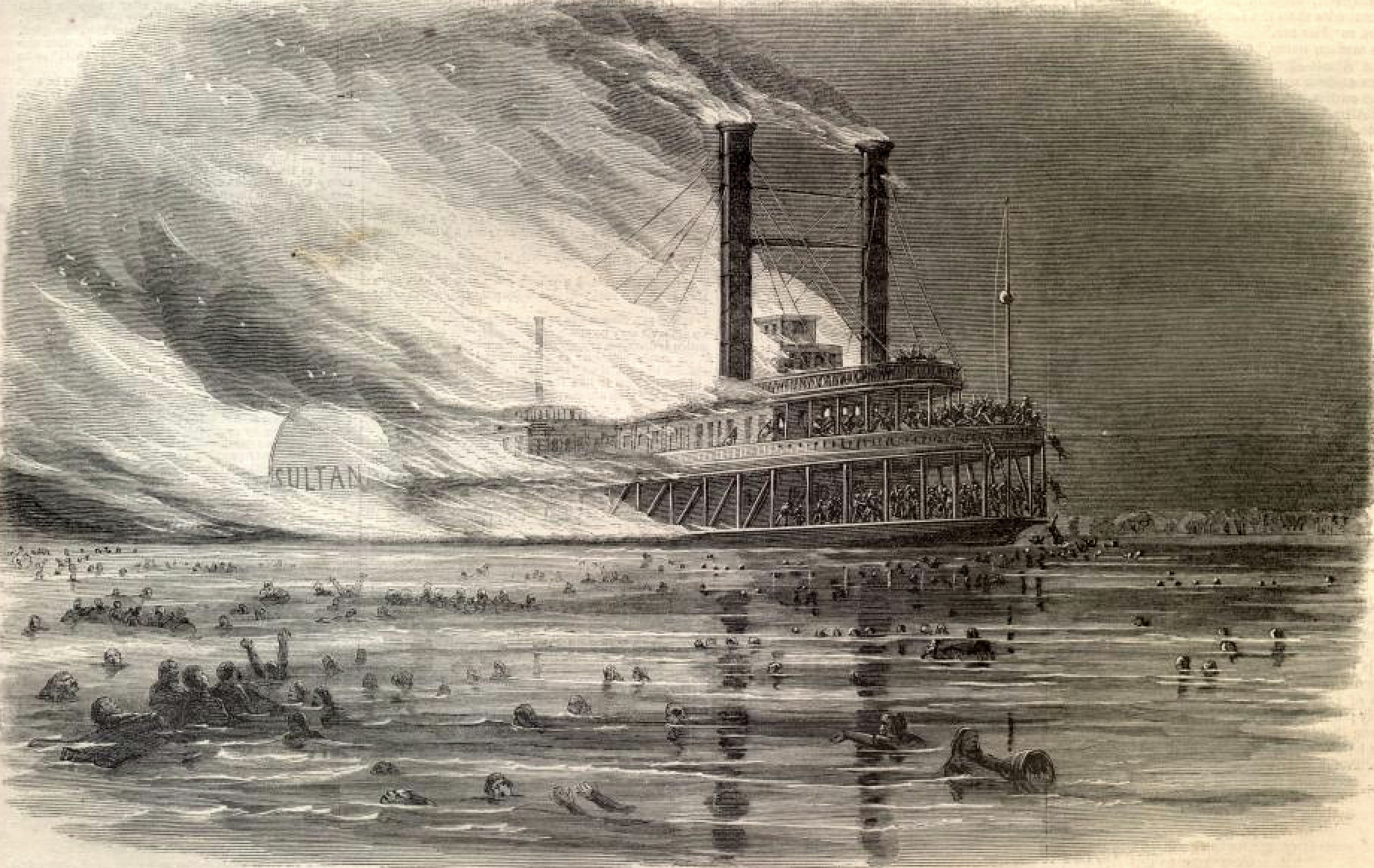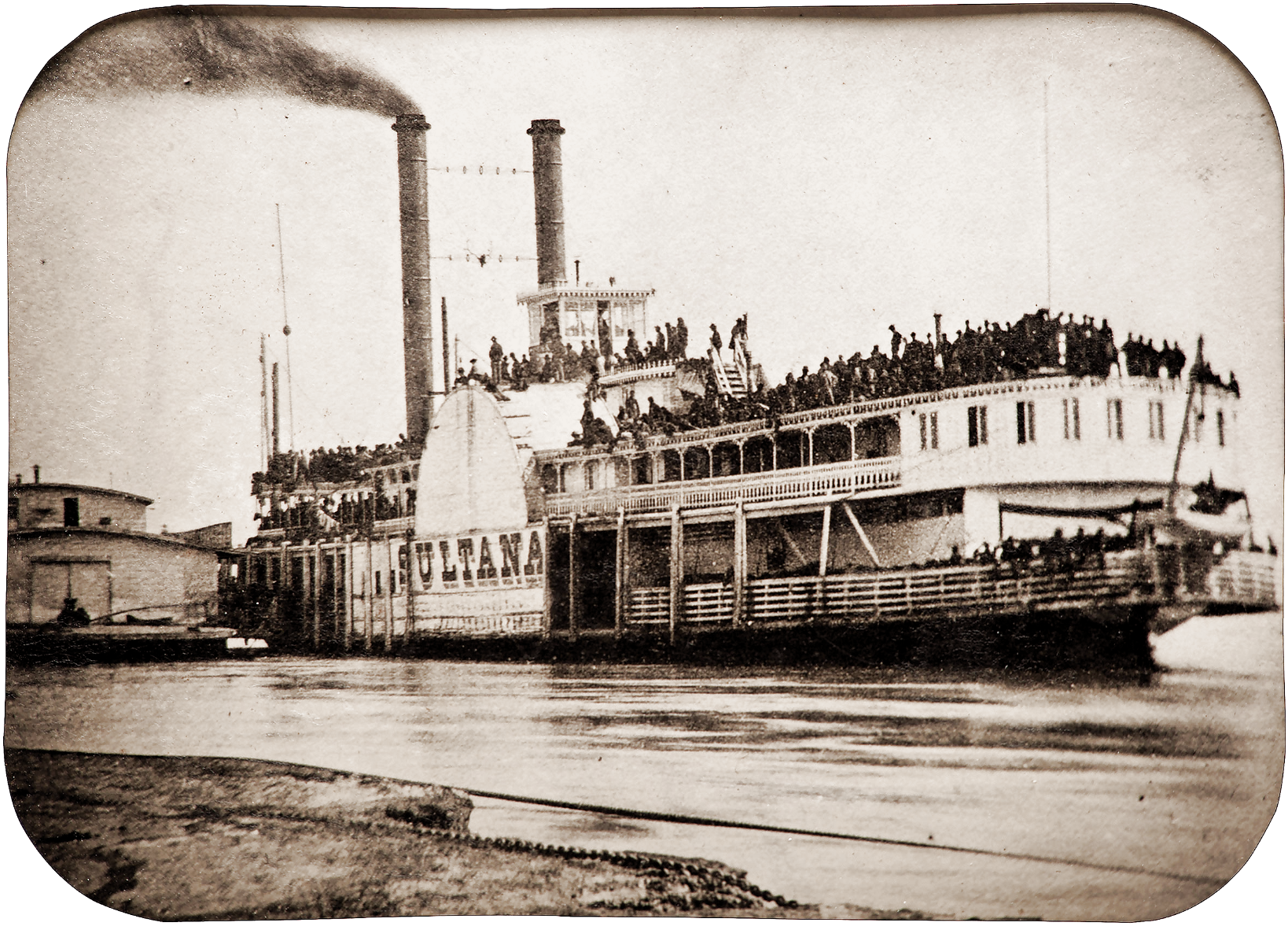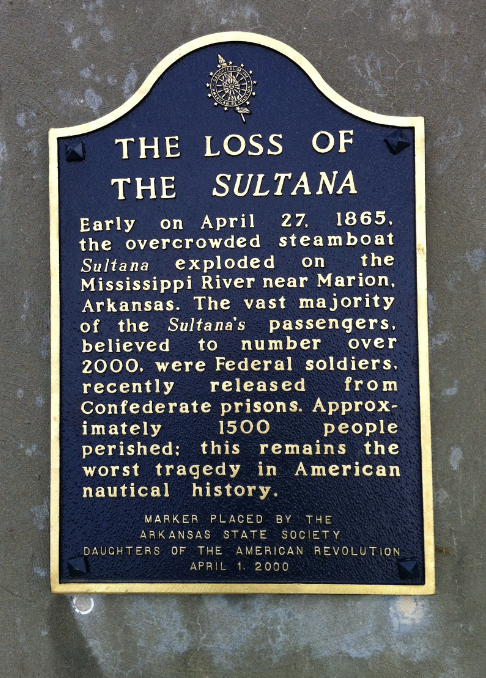
*
On April 27th 1865, the American steamboat the SS Sultana met a tragic end on the Mississippi River. The magnitude of this disaster (like all others of its kind) is incomprehensible, and yet… many remain unaware of its existence. The sinking of the SS Sultana is considered the greatest maritime disaster in United States history.
April 1865 marked a turning point in American history – the Civil War had finally come to an end, and people, desperate for solace and healing, began to rebuild their lives. The SS Sultana, a wooden side-wheel steamboat, was built in 1863 and was originally designed to transport both passengers and cargo up and down the Mississippi River. But with the end of the war came the responsibility of transporting thousands of Union soldiers back to their homes in the northern states. This seemingly innocuous task would end in a disaster that would claim more lives than the sinking of the infamous Titanic in 1912.
On April 24, 1865, the SS Sultana was docked at Vicksburg, Mississippi, where it began taking on an unbelievable amount of Union soldiers, many of whom were recently released prisoners of war from Confederate camps in Andersonville and Cahaba. As the soldiers boarded the steamboat, their excitement and anticipation filled the air. These weary men were finally going home to their families and friends, and the SS Sultana was their ticket back to freedom.

*
The SS Sultana was 260 feet long and 42 feet wide, and was designed to carry a maximum of 376 passengers. However, the pressing need to transport the soldiers along with gross negligence on the part of the captain (Captain J. Cass Mason – an experienced steamboat pilot), owners and ticket-masters led to a severe overcrowding of the vessel. Approximately 2,300 passengers boarded the steamboat, including soldiers, civilians and crew members. The boat’s capacity was pushed to its limits, with soldiers stacked on every available surface, even sleeping packed in like sardines on the decks.
Despite the overcrowding, the true catalyst for the impending disaster lay in the steamboat’s boiler system. Prior to the Sultana’s arrival in Vicksburg, a leak had been discovered in one of the boilers. Instead of properly repairing or replacing the damaged boiler, a temporary patch was applied – a decision driven by greed and expediency, as the captain and the ship’s owners did not want to lose out on the lucrative government contract for transporting the soldiers. This choice would ultimately lead to the deadliest maritime disaster the United States has ever seen.
Tragedy struck after three full days on the river, on the night of April 27th, when the steamboat was about 7 miles from Memphis, Tennessee. At around 2 in the morning the hastily patched boiler exploded, instantly killing the captain and at least 500 people, followed in quick succession by the explosion of the two other boilers and even more destruction. In a mere instant, the once-bustling vessel was transformed into a scene of utter chaos and devastation. The explosion ripped through the heart of the Sultana, killing hundreds of passengers instantly, hurling others into the cold, dark waters of the Mississippi River, and setting the wooden steamboat on fire.
Many of the injured survivors found themselves caught in the river’s swift currents, clinging to debris or trees and fighting for their lives. Even more of them succumbed to drowning or hypothermia. Rescue boats (mainly other steamers) from Memphis rushed to the scene (though the earliest to arrive wasn’t for a half hour after the explosions) – but the chaos, darkness, fire and smoke made their efforts difficult and mostly unsuccessful. As dawn broke, the grim reality of the disaster became clear. The SS Sultana, once a beacon of hope for these soldiers, was now a smoldering mass sinking into the Mississippi River.
By the time the Sultana had burned to the waterline and finally sank, an estimated 1,200 to 1,800 lives were lost. This made the SS Sultana disaster the deadliest maritime disaster in American history. The Sultana tragedy shook the nation, as thousands of families mourned the loss of loved ones who were supposed to be finally returning home from a gruesome war where they fought for their country.
Despite the sheer magnitude of this disaster, and though several men involved with the boat were court-martialed, no one person was ever held formally accountable. The death of the Captain and crew made it extraordinarily difficult to place blame, and with the United States still reeling from the aftermath of the Civil War, the SS Sultana did not necessarily receive the place in US history that it ought to. So today, 158 years to the day of this tragic accident, we bring attention to it and to the lives so needlessly lost.

*

This Civil War item was published in 1865, the same year of the SS Sultana disaster. Meant to be carried in the pockets of Civil War soldiers, this little “convenient pocket manual for soldiers in the army and navy” includes a Soldier’s Calendar, a Pay Table and details, objects, principles and plans of the U.S. Sanitary Commission, as well as religious hymns and psalms, meant for civil war soldiers. See it here.

